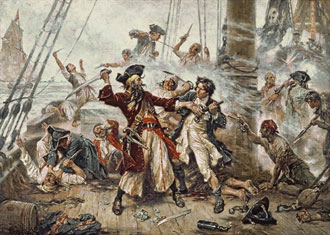 The BBC has told the Australian government that it would be wise to consider all users of VPNs as pirates.
The BBC has told the Australian government that it would be wise to consider all users of VPNs as pirates.
In a submission to the Australian Government on the issue of online piracy, the BBC said that ISPs should be obliged to monitor their customers’ activities.
If a punter uses VPN-style services and consume a lot of bandwidth it should be assumed that they are stealing content.
BBC Worldwide has now presented its own views to the Aussie Federal Government and it is clear that the corporation wants new anti-piracy measures to go further than ever before.
The BBC moaned that the recent leaking of the new series of Doctor Who to file-sharing networks acted “as a spoiler” to the official global TV premiere.
“Despite the BBC dedicating considerable resources to taking down and blocking access to these Doctor Who materials, there were almost 13,000 download attempts of these materials from Australian IP addresses in the period between their unauthorised access and the expiration of the usual catch-up windows,” the BBC wrote.
The BBC wants to ISPs leant on and set up a graduated response scheme of educational messages backed up by punitive measures for the most persistent of infringers.
Those sanctions could lead to a throttling of a users’ internet connection but should not normally lead to a complete disconnection.
The BBC said that ISPs should not only forward notices, but also spy on their customers’ Internet usage habits.
Aunty said that the situation has been made worse by the adoption of virtual private networks and proxy servers by some users, allowing them to circumvent geo-blocking technologies and further evade detection.
In Australia, the sticking point is who should pay for all this. The ISPs believe they should not have to pay for anything, but the BBC thinks that the costs need to be shared.
“In light of the fact that a large inducement for internet users to become customers of ISPs is to gain access to content (whether legally or illegally), it is paramount that ISPs are required to take an active role in preventing and fighting online copyright infringement by establishing and contributing meaningfully to the cost of administering some form of graduated response scheme,” the BBC wrote.





